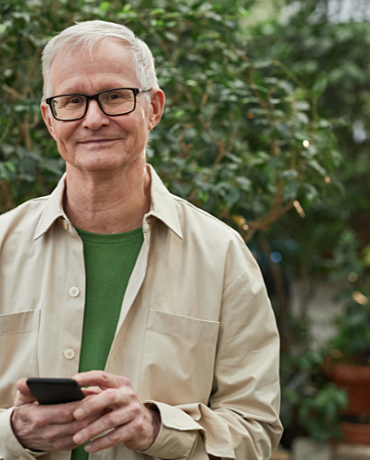Resilience
We all respond differently to life-changing situations. Our research is dedicated to understanding why these differences exist, including the environmental, psychological and behavioural factors that contribute to resilience in a person.
We all respond differently to life-changing situations. Our research is dedicated to understanding why these differences exist, including the environmental, psychological and behavioural factors that contribute to resilience in a person.

There are several factors that are associated with resilience, including:
Importantly, these are skills that people can learn and develop for themselves.
Our research focuses on identifying what characterises brain mechanisms that underlie resilience. We are also looking at how genetics and environment influence resilience.
Our aim is to better understand resilience through long-term testing of a large cohort of Australian adult twins. Resilience testing in other population samples, including young adults and adolescents, will also help us to gain a more complete picture.
To measure brain function, we use techniques including neurocognitive performance tests and tests conducted during a magnetic resonance imaging scan (MRI).
NeuRA has developed the COMPAS-W Wellbeing Scale, a 26-item questionnaire that measures both subjective and psychological wellbeing. We plan to use this in our research to assess levels of flourishing and resilience amid trauma and stress.
Initial research suggests that both our genetics and environment are equally important in determining levels of mental health and optimal functioning.
We have started to identify mechanisms in the brain that could indicate resilience. This includes variation in the size of specific brain regions and how they respond to different emotional stimuli.
NeuRA has also discovered variations in specific cognitive functions and protective genetic variants through a study on 1,600 identical and non-identical twins. We hope this will shed light on how to predict resilience to stress and improve mental health outcomes for our population in future.
Finally, we are exploring the potential genetic mechanisms in psychiatric disorders and started to find potential variants to target.

Principal Research Scientist
Every dollar of community support enables our scientists to continue making life-changing discoveries that contribute to a brighter and healthier future.
Run, swim or bake your way to making a positive difference in the lives of people touched by brain and nervous system disorders.
Stay informed about our latest research breakthroughs, scientific discoveries and the incredible minds behind them – subscribe today.
Neuroscience Research Australia respectfully acknowledges the Bidjigal and Gadigal peoples of the Eora Nation as the Traditional Owners of the Land on which we stand and pay our respects to Elders past and present.
Redevelopment of the NeuRA website has been made possible by the generous support of Conexus Financial.








